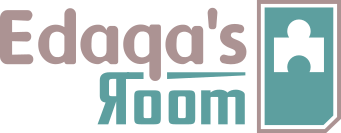
A measure of how grounded a puzzle is in the game world
Realism is a measure of a puzzles applicability to the game world: how realistic it feels that somebody living in that world would perform that type of activity. Realism is a scale, with truly real at one end, and fully abstract at the other. Game genres are often divided along levels of realism.
An example of a realistic puzzle is using a key to open a door lock. This is something that we'd naturally expect to do with a door. Having to solve a cross-word to unlock the door is abstract, as it's not naturally related to the door, and has no game world applicability.
Realism is always measured with respect to the game world, not the physical universe in which we, the human players, live. For example, in a magic themed game, all doors might be magically locked, requiring a wand to unlock them. In that case, using a wand to open a door is a real puzzle. Indeed, in such a world, using a physical key might be abstract.
Realism is unrelated from game mediums. Physical escape room and video game puzzles can be measured on the realism scale. The evaluation is done within the game world, whatever medium that might be.
Players are usually willing to tolerate simplifications of realism, to avoid tedium or overly difficult challenges. For example, if you're in a mine, you'd be expecting to dig out a section of a wall. A video game would greatly speed up that process and a physical room might require only a few blocks be removed. Nobody wants to spend the days that would be truly be required to chip away at the wall.
It's a challenge to say how much this impacts the realism, and it probably depends on the manner and degree of the simplification. Even if it took only a few hits of a pickaxe, a player may still feel the activity is real. However, if they simply need to touch the wall with their finger, and the blocks disappear, it will feel abstract.
Shifts in realism create a jarring experience for the player.
Consider the mining example again. The game might focus on high-levels of realism suc as digging holes, moving material around, or connecting ignition lines. Suppose the player finds a raid and must tune it to the right frequency, so they open the operations guide to find frequencies, but then are presented with a sudoku puzzle with missing numbers being the frequency. This is entirely out-of-place, as it's too abstract for this world.
For an example in the opposite direction, imagine a book of logic and math puzzles, all highly abstract puzzles. Now on page 50 they encounter a corporate accounting spreadsheet with some numbers missing. Ostensibly it's the same type of puzzle, but the shift in realism may break the players desired to solve that puzzle, or question the book in its entirety.
Creating a mix of possible types isn't a problem in itself, but the change in that mix is what creates the jarring experience. If the mine, right from the start, was littered with number puzzles, the sudoku would be expected. The entire game's realism would be shifted.
Breaking expectations isn't unique to realism, but applies to theme, complexity, difficulty, and any other scale on which the puzzles or game world can be measured.
If you have any questions, need an example, or want clarification, then let me know. Ask on Discord or Twitter.
Assume everything in this reference is a working draft, there's prone to be some mistakes and inconsistencies. I figure it's best to publish and get feedback rather than write for years in secret. The terms will change, the structure will shift, and the bugs will be chased out. It'll take a while.